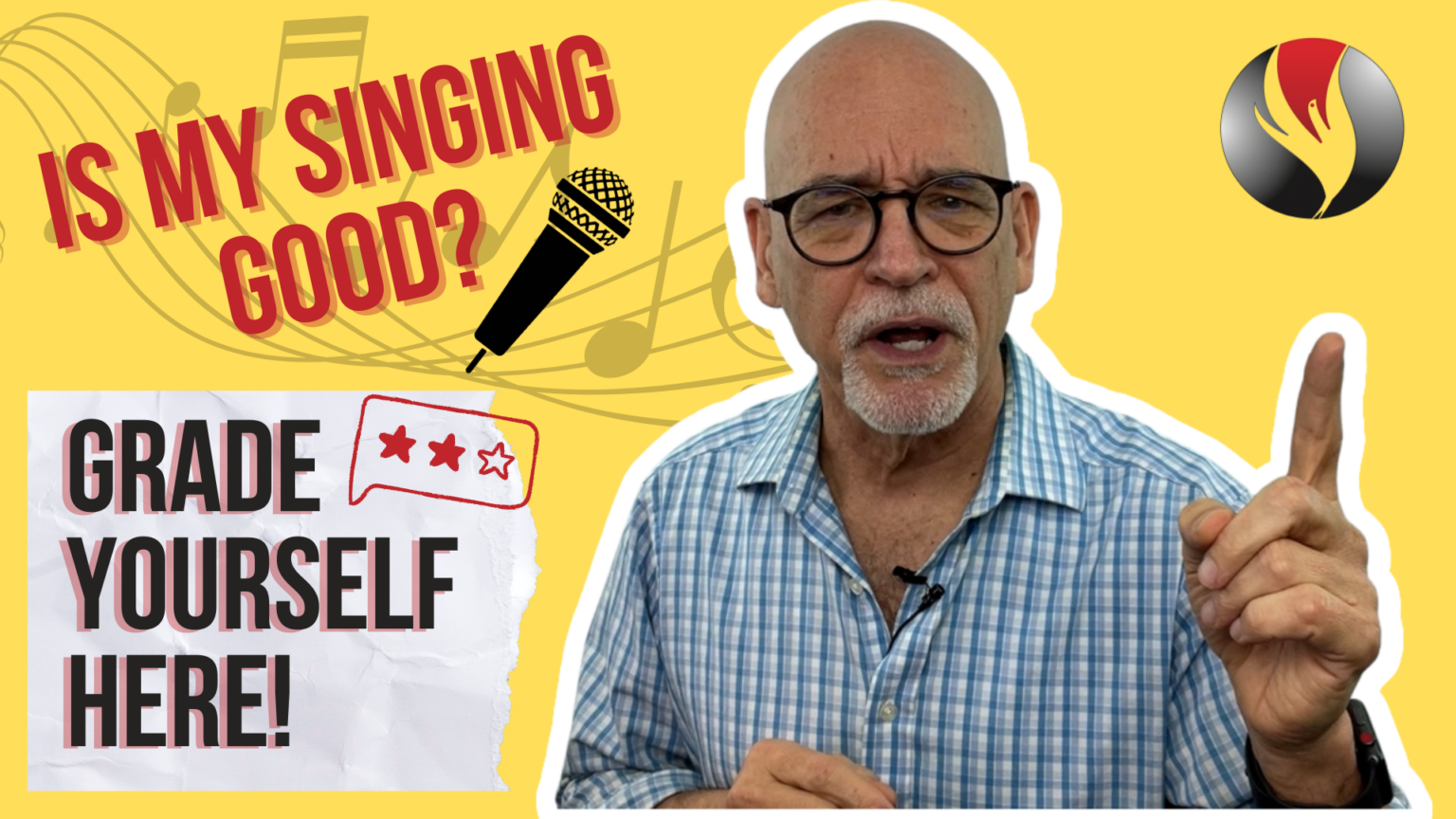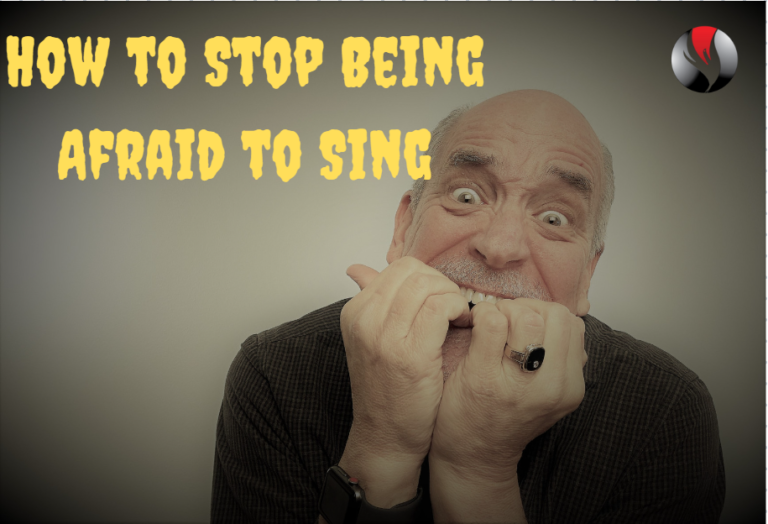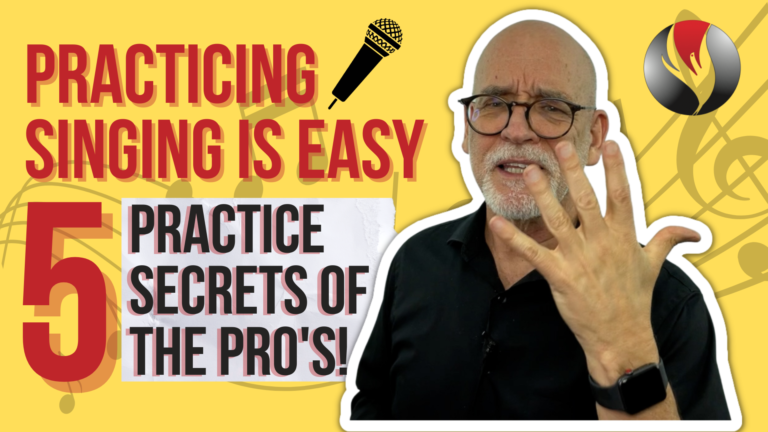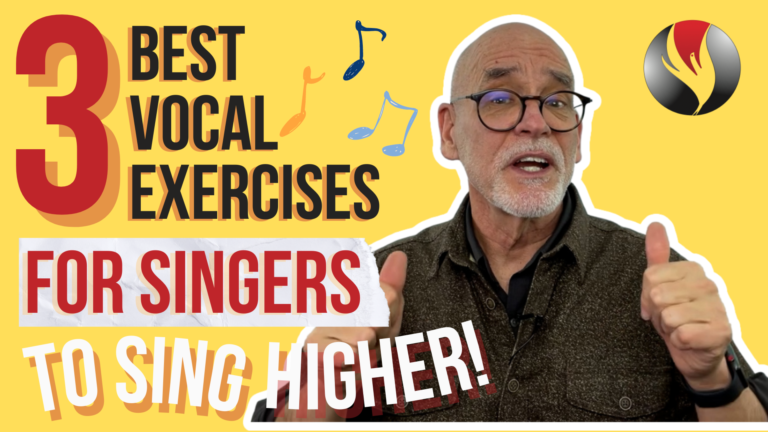Is my singing good? This is a question many singers have when they want to take their singing to the next level. Here’s a simple way to grade yourself to determine where you need to improve.
Hi, I’m Chuck Gilmore, founder of Power To Sing and the Second Nature Singing System.
The question, “Is my singing good” is asked by many of us, largely because we want to know if we can succeed with our singing voice.
I assume you want to be a professional singer or a major player in the local music and/or theater scene. There are many skills you must develop. Of those, here are three areas in which you must excel. Grade yourself with a simple yes or no and then tally your score.
Vocal Technique
#1. You absolutely must sing on pitch. Not almost. Not most of the time. All the time you must be able to sing on pitch. Are you able to sing on pitch? Yes or No.
#2. Bridging. You must be able to transition from chest voice, through the first bridge of your voice, which is the area of your voice you must begin to mix, and into head voice with a connected, even and consistent tone and back down again. Yes or No.
#3. Your tone is unmanufactured and uncluttered, meaning it doesn’t sound forced, artificial, or unnatural. You can sing loud and soft and in between. It’s easy, free and comfortable throughout your range. Yes or No.
#4. Your vocal range serves your genre and style. You have great high notes and low notes. You are not limited by inadequate range. Yes or No.
#5. You can sustain any note with vibrato anywhere in your range. Yes or No.
#6. Your words are easy to understand. Yes or No.
Vocal Technique Total Score: Yes_______ No_______
Application of Technique to Songs
Your score above may show great technique, but what happens when you apply it to songs?
#1. When you sing a song, are you able to maintain your technique throughout your song? Or does your voice suddenly go lighter, or feel like it’s going to crack? Does your voice start to get tired early in your performance? Does it feel like you are yelling sometimes? Do you end the night with a hoarse voice? Is your voice sore the next morning? Do you often want to lower the key of your song to make it easier? Yes or No.
#2. Are you able to sing in mix with all your songs and take the high notes in your second bridge…or head voice when you want to? Yes or No.
Application of Technique to Songs Total Score: Yes_______ No_______
Performance Skills
You may have great vocal technique in the exercises, and you are able to maintain it during your songs. How well do you entertain and move your audience?
#1. You love to perform for audiences, are fun to listen to and watch, are Entertaining. Yes or No.
#2. You are a confident performer. You would rather be performing than anything else. Yes or No.
#3. You are committed to your craft, are able to hit the road, tour and promote your album. You can work long and hard hours, in studio, in rehearsals, on tour, during shows. Yes or No
#4. When you sing, you tell a great story. You communicate feelings and emotions through your songs. The audience loves watching you. Yes or No.
#5. You connect with your audience and they connect with you. You command the stage when you perform. Yes or No.
Performance Total Total Score: Yes_______ No_______
Where do you need to improve? What should you work on first?
Vocal Technique, Application of Technique to Songs and Performance Skills each are parts of the Three Pillars of the Second Nature Singing System.
To me, everything begins with good vocal technique. And then you must sing songs and perform them extremely well for audiences. If your vocal technique is strong, you may still struggle applying it to songs. Perhaps your songs go well, but performing for audiences is difficult. Maybe you’re a great performer, but you lose your voice by the end of the night and need to improve your vocal technique. Each of these skills interrelate and either improve or diminish the other.
Many popular singers still struggle pulling chest voice too high, losing power in their voice, struggling with vibrato, experiencing straining or breathiness. These things can lead to vocal damage, canceled performances and a shortened singing career.
Mastering Vocal Technique
Mastering vocal technique is a necessity for your professional success and longevity. Begin by discovering your vocal type. I’m not talking about whether you are a soprano, alto, tenor or bass.
Your vocal type describes what your voice does as you sing from low to high notes. In other words, do you strain, or crack, or flip into falsetto, or go very breathy and airy? Then you need to do exercises designed to fix this in your voice. If you mix, you need exercises to challenge, build and improve your mixed voice.
It’s easy to get your vocal type. Take a short quiz by clicking the link here.
Once you know your vocal type you can begin doing exercises designed for your specific vocal needs. The exercises help eliminate the weaknesses and build new and correct muscle memory to immediately begin improving your singing. In the Second Nature Singing System, they’re called Designer Exercises.
Last of all, there are other important skills to becoming a professional or leading community singer. Before sharing these, please take a moment to give this video a thumbs up, subscribe, and click the bell to be notified when I post a new video. If this has been helpful for you, please tell me how in the comments section.
Here are some other important skills to help you succeed.
-
Becoming a songwriter
-
Playing an instrument like keyboards or guitar
-
Musicianship skills such as reading music, time and key signatures
-
Work ethic
-
Willingness to sacrifice
-
Personal drive/initiative
-
Having a support team
-
Strong social media presence and followers
-
Love of the process, that is you love to rehearse, write lyrics, practice, record, perform, engage audiences live and on the web
-
Willingness to invest years and 1000’s of hours and dollars
-
Ability to tour
Let me know what else you think is important for success as a confident singer-performer.
Please join me on Twitter, Facebook, and Instagram @powertosing.
I’m Chuck Gilmore with Power To Sing. For you, singing and performing can be second nature.








Responses
I am good at singing I guess